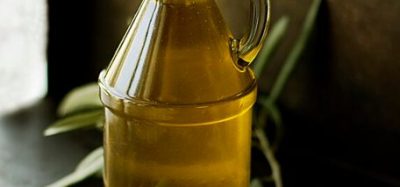Ferrero responsible palm oil progress update
- Like
- Digg
- Del
- Tumblr
- VKontakte
- Buffer
- Love This
- Odnoklassniki
- Meneame
- Blogger
- Amazon
- Yahoo Mail
- Gmail
- AOL
- Newsvine
- HackerNews
- Evernote
- MySpace
- Mail.ru
- Viadeo
- Line
- Comments
- Yummly
- SMS
- Viber
- Telegram
- Subscribe
- Skype
- Facebook Messenger
- Kakao
- LiveJournal
- Yammer
- Edgar
- Fintel
- Mix
- Instapaper
- Copy Link
Posted: 2 June 2014 | Ferrero | No comments yet
Six months after the launch of Ferrero’s Palm Oil Charter, we are pleased to provide an update on our work to implement the Charter across our supplier base…


Six months after the launch of Ferrero’s Palm Oil Charter, we are pleased to provide an update on our work to implement the Charter across our supplier base.
The Charter was established in November 2013 to make sure the palm oil Ferrero buys is deforestation-free and grown with respect for local communities, workers and biodiversity.
Also in November, Ferrero became a member of global non-profit organisation TFT, whose teams are supporting efforts in the field to intensify our work on responsible palm oil procurement.
Traceable palm oil
As a responsible food company, we believe our products should contain palm oil that is traceable back to the plantations and is deforestation and exploitation-free, therefore not linked in any way to environmental degradation and social injustices.
Traceability is critical to achieving this; knowing exactly where the palm oil we buy comes from is the only way to assess practices on the ground and understand if improvements need to be made. At the time of publishing our Charter, 75% of our supply was fully traceable to Roundtable on Sustainable Palm Oil (RSPO) standards. Our focus over the past six months has been to build on this, to trace as much of the remaining supply from refineries through to mills and plantations.
Because of this work, today 90% of our palm oil is traceable back to plantation. Our current supply base consists of 10 refineries, up to 35 mills and 182 plantations in Malaysia, Papua New Guinea and Brazil. In our journey toward responsibility, we remain open to supplies from further countries where growers are committed to complying with our Charter.
No Deforestation palm oil
Recognising that palm oil is a complex industry with many players and varying levels of knowledge, much of our work in the first six months has been to engage suppliers in understanding what we are asking them to commit to through our Charter. This includes guiding them through each of the criteria and what this means in practice.
Palm Oil Charter: Assessing practices
With traceability developing well, the next step is to assess supplier practices. Ferrero has developed a methodology with TFT to evaluate how well the Charter is being implemented by our suppliers and to help growers move beyond RSPO requirements – for example, by committing to no deforestation through the protection of High Carbon Stock forests and High Conservation Value areas, as well as working to include smallholders in responsible supply chains. Our Charter sets out all ten criteria suppliers must commit to, many of which go beyond certification requirements.
Drawing on available environmental and social information, the methodology identifies which plantations in the supply chain should be visited first to review practices against the Charter principles. Those priority plantations are now being visited and recommendations are being made to growers to strengthen a range of practices. Importantly, all visits to date have found no evidence of deforestation within the plantation areas we source oil from.
Next steps
We will provide a further progress update in six months. In the meantime we will continue to collaborate closely with suppliers to implement our Charter, with the goal of reaching 100 % traceability back to the plantation by the end of 2014 and 100% compliance by the end of 2015.
Visit also: www.tft-forests.org






